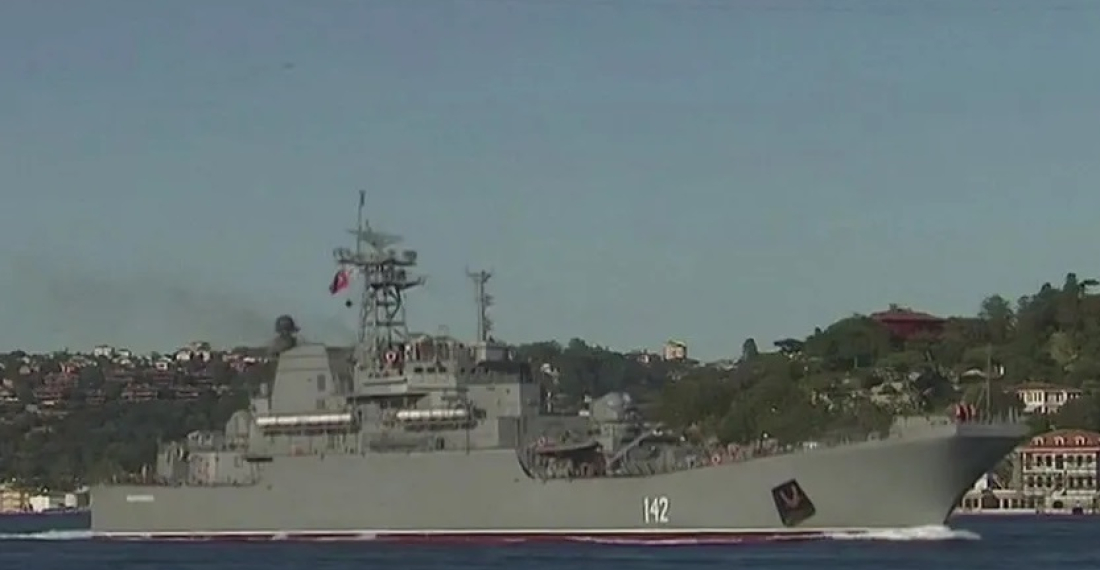Russia has confirmed one of its warships has been damaged in a Ukrainian attack on a Black Sea port.
The airstrike took place at Feodosiya in Russian-occupied Crimea early on Tuesday morning.
Russia's Ministry of Defence said the large landing ship Novocherkassk was struck by Ukrainian aircraft carrying guided missiles.
The head of the Ukrainian Air Force said earlier its warplanes had destroyed the ship.
One person was killed in the attack, according to the Russian-installed head of Crimea, Sergei Aksyonov. Several others were reportedly hurt.
Six buildings were damaged and a small number of people had to be taken to temporary accommodation centres, Mr Aksyonov added.
The port's transport operations are said to be functioning as normal after the area was cordoned off, while a fire caused by the attack was contained.
Footage purportedly showing a huge explosion in the port was shared by Ukrainian air force commander Lt Gen Mykola Oleshchuk.
The images have not been independently verified. However, satellite imagery from 24 December shows a ship at port in Feodosiya that appears to be the same length as the Novocherkassk - a landing ship designed to transport troops, weapons and cargo to shore.
Any significant damage to the ship will be a welcome bit of good news for Ukraine, with waning Western support now affecting its front-line operations. Given that the Novocherkassk was in dock, it is highly likely it was being loaded with soldiers, equipment or both.
There was speculation that the ship was carrying Iranian-made Shahed drones, which Russia has been using in its attacks on Ukrainian targets.
Speaking on Ukrainian TV, the head of the press centre for Ukraine's southern command, Nataliya Humenyuk, said it was "clear that such a large detonation was caused by more than just the fuel or ammunition of the ship itself".
Ms Humenyuk added that Russia had been facing difficulties with transporting "important cargo" due to damage on the Kerch bridge that connects Crimea to Russia.
"So, it is quite likely that it [the Novocherkassk's cargo] was a kind of "Christmas present, completely wrapped," she said.
Taking the ship out of action, even if only temporarily, will no doubt hamper Russia's ability to supply troops in territory it occupies further north.
What is less clear is how long its operations will be disrupted for and what impact this strike will have on the front lines.






